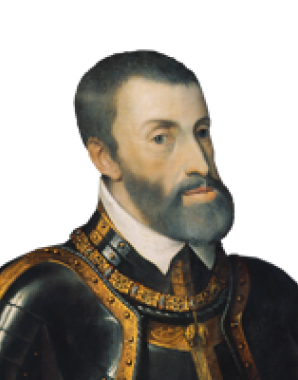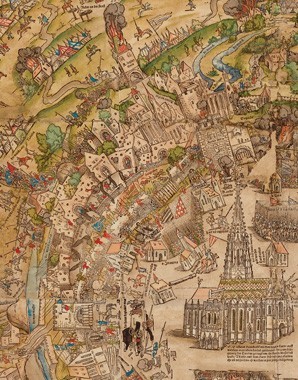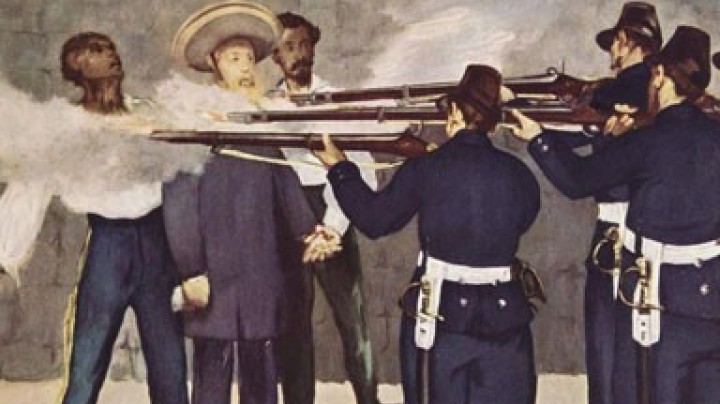‘The Turk’ at the gates of Vienna: Episode 1
In the autumn of 1529 Sultan Suleiman advanced upon Vienna with a seemingly invincible army but failed to take the city.
Summer 1529, Adrianople (present-day Edirne, Turkey): Sultan Suleiman heads for Hungary with a huge army of 150,000 men and camp-followers. They make swift progress, taking Ofen (present-day Budapest) on September 8 and proceeding up the Danube as far as Vienna. On 26 September the Sultan pitches his castle-like camp at Kaiserebersdorf south-east of the city walls.
As the city had never before been under direct threat from an Ottoman army, the 1529 siege came to be known as the First Turkish Siege of Vienna. With its fortifications still dating largely from the thirteenth century, the city was defended by some 12,000 mercenaries under the command of Count Niklas von Salm, supported by a force of 5,000 imperial troops under the count palatine Philip of the Rhine that reached Vienna only a day before the Sultan. Several Ottoman onslaughts on the city were repelled. Tartar auxiliaries roamed through the surroundings of Vienna wreaking destruction that would take generations to repair. However, after three weeks and considerable losses, the attackers gave up the unequal struggle. It is thought that on the retreat to Constantinople the wintry conditions took the lives of some 30,000 soldiers.
In the years that followed, Ferdinand was denied the support he desired from his brother Emperor Charles V and was only able to assert his power in a small part of Hungary. In Hungary itself, even the noblemen supporting the counter-king John Zápolya showed no interest in being defended against the Turks, with whom they preferred to forge alliances. In 1533, Ferdinand I negotiated a ceasefire from the Sultan in return for payment.
Following the death of John Zápolya in 1540 Ferdinand made an abortive attempt to take Ofen. For 150 years Hungary was to remain divided into three: the north-west – ‘Royal Hungary’ – remained Habsburg territory; central Hungary, centring on Ofen, was administered by the Turks; and in the east the Hungarian nobles who had supported John Zápolya received Transylvania (Siebenbürgen), but under Turkish sovereignty. As the ancient capital and royal residence city of Ofen was in the Turkish part, Pressburg (present-day Bratislava) was made the Habsburg capital of the kingdom of Hungary.



















